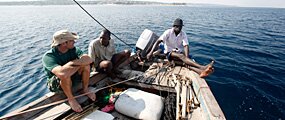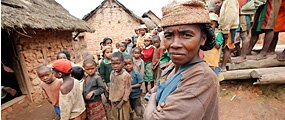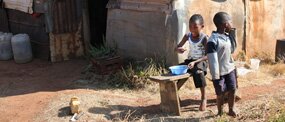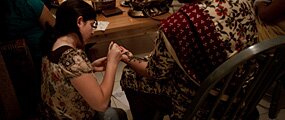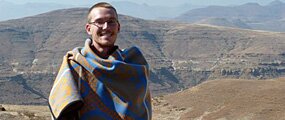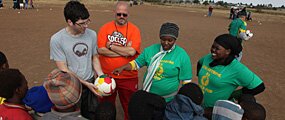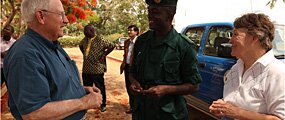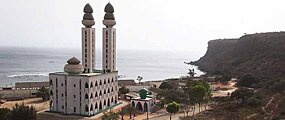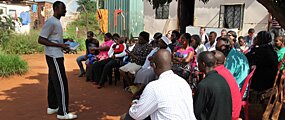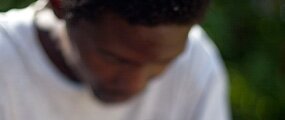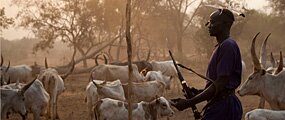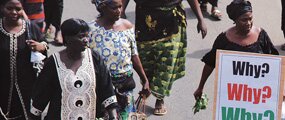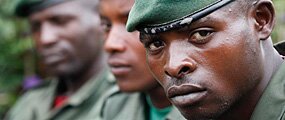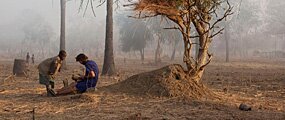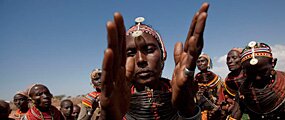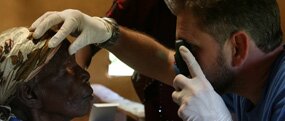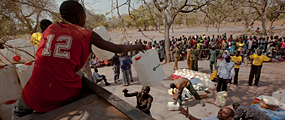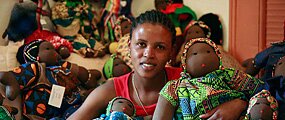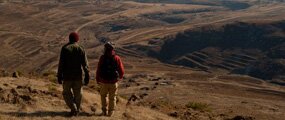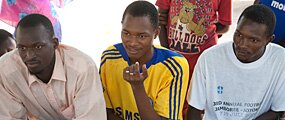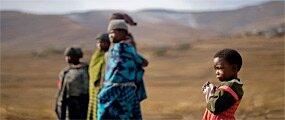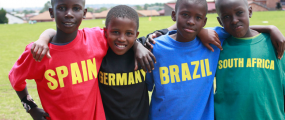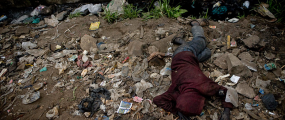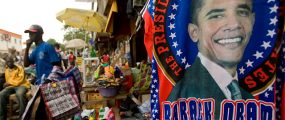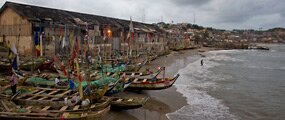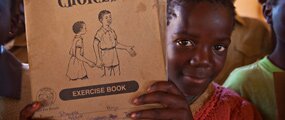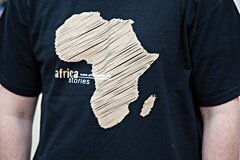Photo Gallery
Hurt and hope exist side by side in the deadliest conflict since World War II.

The conflict in the Democratic Republic of the Congo is a spillover from the 1994 Rwanda genocide, where one million people were slaughtered in 100 days.

The Congo war is the deadliest conflict since World War II. To date 5 million people have died. Pictured is a cross from a church in Goma, Congo.

“I murdered people, and I raped women,” said one rebel, “and I enjoyed it.” He and seven others gathered on a small compound in the town of Goma to share their stories.

As the eight men told of the lives they led as rebel soldiers, some nervously fidgeted with their AK-47s.

“I raped, killed and stole from people,” a second rebel said, while a third added, “I killed and raped. I loved being drunk and raping women. I have even killed children.”

Members of Mizeituni Baptist Church, located about 30 miles from Goma, gathered to share their stories as victims of atrocities committed by both rebel and government forces.

One church member, in her seventies, told how rebel soldiers raped her last year. It was the first time she had ever told her story. She was told not to tell her husband because “he wouldn’t understand.”

“The soldiers came from this direction,” said a victim of rebel atrocities, standing outside of her home. Her village straddles the “safe zone” and areas of rebel and military activity.

“[Rebels] dragged me from under the bed, took me into the bush, tied me up, and raped me,” said this woman in her seventies. Atrocities such as this are committed daily by both rebel and government forces.

“Now I have found that I have a venereal disease,” said this woman who was raped by rebel soldiers. “I am very angry and sad,” she said.

Many in the rural areas flee rebel activity and head to Goma, where they find refuge in camps such as this one at Baraka Baptist Church. Members there have stories hauntingly similar to those at Mizeituni Baptist Church.

At Baraka Baptist Church refugees gathered to share the horrors of being caught in the crossfire between government forces and rebel soldiers.

One refugee at Baraka Baptist Church said, “After hearing the shooting and seeing people dying, I grabbed my wife and children and began to run toward Goma. I finally arrived at the church here.”

Missionary Rusty Pugh met with Congolese Baptist leadership to devise a plan to share the Gospel with rebel fighters hiding in the mountains. Seven pastors were trained to evangelize using their testimonies, Bible stories and Scripture passages.

“We must identify ourselves as servants of God and that we are there to share the wonderful news of Jesus Christ,” said pastor Pascal Ndiho, coordinator of the project to reach out to rebel soldiers.

“We try not to think about what we did … but it is hard,”said one of the rebels. Another added, “I know that I committed many sins, but now I know I can be forgiven because of Jesus.”

As rebels describe how Jesus transformed their lives, their faces change from fear and shame to joy and peace. One said it was the happiest day of his life when he accepted Jesus.

To date over 500 rebels have been baptized, and many now share their faith and conduct Bible studies. Kangenga Banganyigabo (center) is now a government military chaplain.
Follow Us Online!
























